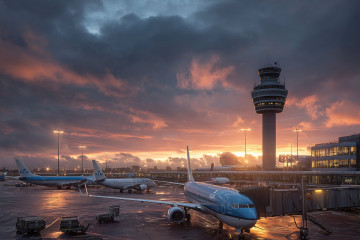International travellers are free to come to Hong Kong, and there are no more restrictions upon arrival. If you have some enquiries about travelling to the city, we’ve compiled a guide to help you with everything you need to know when entering Hong Kong, from things to prepare before arriving at Hong Kong International Airport to all the steps you must take as soon as you land.
Who can visit Hong Kong now?
Hong Kong has already dropped the vaccination requirement for Hongkongers and international arrivals. Unvaccinated residents and non-residents will be able to enter the city without restriction.
What are the requirements to enter Hong Kong?
With Covid-19 measures now eased in Hong Kong, including arrival restrictions, international travellers looking to explore the city are now free to enter. Of course, if your country requires a visa to visit Hong Kong, please obtain one before your trip.
Negative RAT or RT-PCR test results before boarding are no longer required.
Will they allow entry if my visa is expiring?
If you’re not a permanent Hong Kong resident and travelling under a work or tourist visa, ensure your visa has a sufficient validity period, or you will be denied entry.
The Immigration Department (ImmD) provides electronic services for visa application and ‘e-Visa’ arrangements, allowing applicants to complete the entire process without going to the immigration office in person. Suppose your visa is under renewal and is getting delayed. It is best to send an authorised representative to the ImmD office to fix your reentry as emails and phone calls will take a long time.
Can arrivals move freely around the city?
Yes, Covid-19 regulations have already eased in Hong Kong. You can freely explore all the incredible things to do in the city. Mask-wearing mandate, the last major rule to fight against Covid-19, has been lifted since March 1.
Do I still need to take Covid-19 tests?
You don’t need to present negative Covid-19 results when you arrive at the Hong Kong airport, but the government recommends taking daily RAT until the fifth day of arrival (arrival date count as Day 0). Those who take the test may voluntarily declare the result via the Department of Health’s Electronic Covid-19 Monitoring & Surveillance System (eCMSS).
Ok, so you finally booked your flight, what to do next?
To ensure a smooth and efficient arrival, prepare all your travel documents, including visa for non-Hong Kong residents.
What time should I go to the airport for departure?
Delays, cancellations, and a whole lot of waiting may happen before departure, so make sure to be at the airport at least three hours before your flight. Account for extra time if you encounter any problems with airline check-in.
Arrival at Hong Kong International Airport
Yes, you’re finally in Hong Kong, but not just yet. You still have a few more steps to finish before entering. Though the new system significantly cuts the waiting time in the airport, the influx of inbound travellers may affect processing time.
After landing, all inbound persons will pass through temperature checks upon arrival. Those with symptoms will be referred to the Department of Health for further handling. If you’re cleared, you can proceed with immigration procedures, baggage collection, and continue taking public transportation to your hotel or home.
What are the options for airport transfers?
Travellers arriving in the city can take public transport to their destination. Those who want a limousine service can contact their hotels for arrangements. One of the fastest ways to travel from the Airport to the city is through Airport Express.
What if I tested positive for Covid-19?
Hong Kong government no longer issue isolation orders to infected Covid-19 cases since January 30. The government advises symptomatic persons to stay at home to rest and avoid going out. Those who are asymptomatic can go out at will or go to work.
If you belong to high-risk groups and suffer from fever, cough, shortness of breath, vomiting, and diarrhoea, the government recommends that you seek medical attention.



